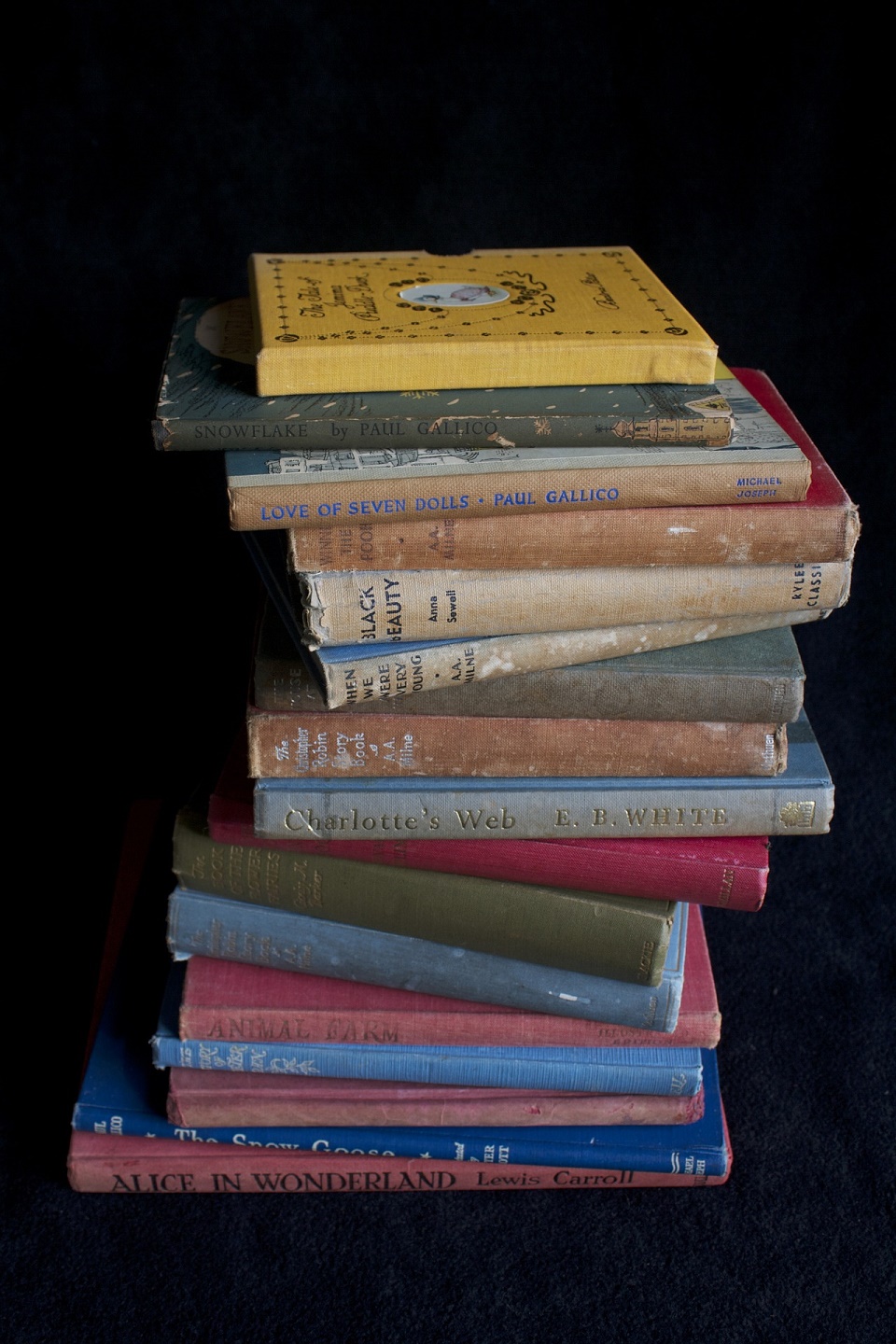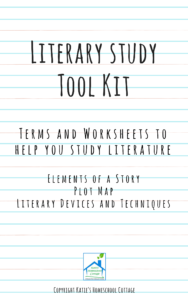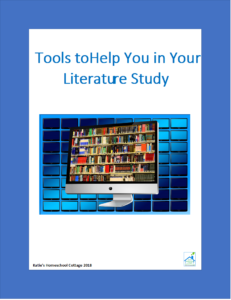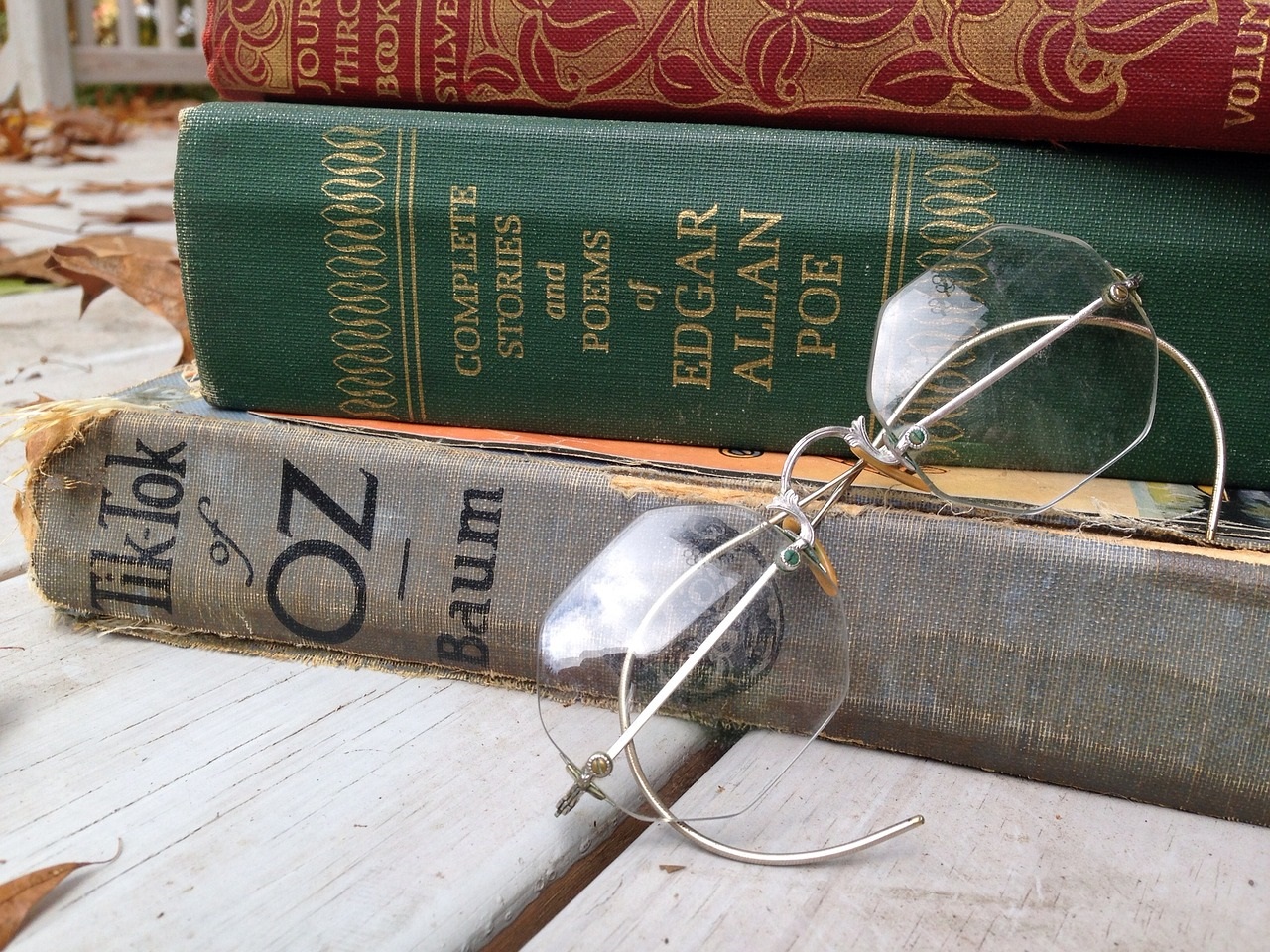During the high school years, you will want to do a homeschool literature study of a short story and novels.
I don’t mean the kind where you examine every object, person, or event as some kind of large symbolic meaning.
What I do mean is breaking the literature into parts and looking more closely at it, not just for meaning but also for the technique used in “rhetoric” or the actual use of words for purpose and effectiveness.
Here I break down a Literary Study into parts with a short explanation of what is usually part of the study:
I. Historical and Author Background
- This is where you want to look at the time period of the author and what was happening historically and culturally in his/her society at the time.
What events, literary movements, societal norms and worldviews were there during this time period?
What authors also wrote at the same time and what genre and topic/themes were they writing?
- You may want to exam if it was a Christian or Secular/Humanistic worldview. (In literature, just as in history, there is pendulum where this tends to go back and forth between the two.)
II. Vocabulary Study and Sentence Structure Study
- I usually include vocabulary for comprehension sake, but also to help expand and develop vocabulary skills.
- I also like to point out different kinds of written styles with various kinds of sentence structures according to author to appreciate or at least be able to identify forms of writing style and rhetoric.
I usually try to include various sentence structures in writing assignments as well after looking at different kinds in a piece of literature.
III. Understanding Literary Devices and Elements
- Appreciating the written word as a reader and conveying thoughts and feelings as a writer to share with a reader, one can use literary devices and elements to convey thoughts, feelings, and expression of ideas more effectively and make a greater impact with that expression.
- Literary devices and elements would include the use of imagery and figurative language.
It would also include techniques such as foreshadowing, symbolism, or allegory.
Those are just a few tools to effectively communicate ideas to readers.
IV. Elements of a Story
- These are the pieces of a story that work together to make an effective piece of writing.
These would be the plot, the characters, any conflicts, setting, point of view from which the story is told. All of these together can make or break a story.
V. Rhetoric
- Looking at the words used to convey ideas and the author’s intent is an important skill to practice and attain.
It helps readers ascertain whether a piece of writing is objective and factual or it’s meant to persuade you to believe something over another belief.
If you are coming from that perspective or not.
VI. Using various levels of Thinking and Analytical Skills
- After learning how to identify and examine different parts of a piece of literature, its meaning, and the author’s techniques, it’s then time to use and apply various levels of thinking skills in looking at your own comprehension of the piece, your own thoughts and feelings about it, evaluating and comparing it to your own personal beliefs and if you believe or wish to adopt or reject some of w’s hat you have taken from the piece of literature and make it part of your own thoughts.
- You can also compare your thoughts and belief systems to that of the author, the piece of literature, and the time period and society in which the author lived.
- Another idea is to compare author to author from that same time period to see if they held the same or different beliefs.
And did they contribute individually or together to the thoughts and culture at the time or in the future, or even now?
- Practicing these kinds of thinking skills are important because they help you identify and solidify your own beliefs in today’s world and not be easily swayed by other’s beliefs without your own examination.
VII. Writing an Analysis or Response to a Literary Piece
- This is the piece at the end of a literary study where you take all of these thoughts from above and practice your own organization of thought and use of rhetorical skills in expressing your own thoughts and beliefs bases on your analysis of the literature.
- This is where the rubber meets the road, taking all of those thoughts and being able to organize and express them effectively to convey your own personal message or beliefs in written or spoken word.
There are many reasons to study literature from appreciating the written word and the techniques used in conveying it, to learning about history or society and worldviews, to learn and understand characters and their motivation and develop empathy, to being able to analyze ideas and beliefs and examine one’s own thoughts and beliefs in comparison, and then be able to learn and apply rhetorical techniques in expressing one’s own thoughts and beliefs.
Literature is a reflection of history, culture, societal beliefs, and an examination of humans and all their foibles.
We can grow rich in knowledge and our own abilities with the study of all kinds of literature.
Making it a part of your own high school homeschooling years is important! You don’t have to wait for high school.
Getting started during the later elementary and middle school years is great practice and preparation for getting into deeper examination in the high school years!
Click here to download your Free Literary Study Tool Kit
Click here to download your Free Tools to Help you in your Literature Study







